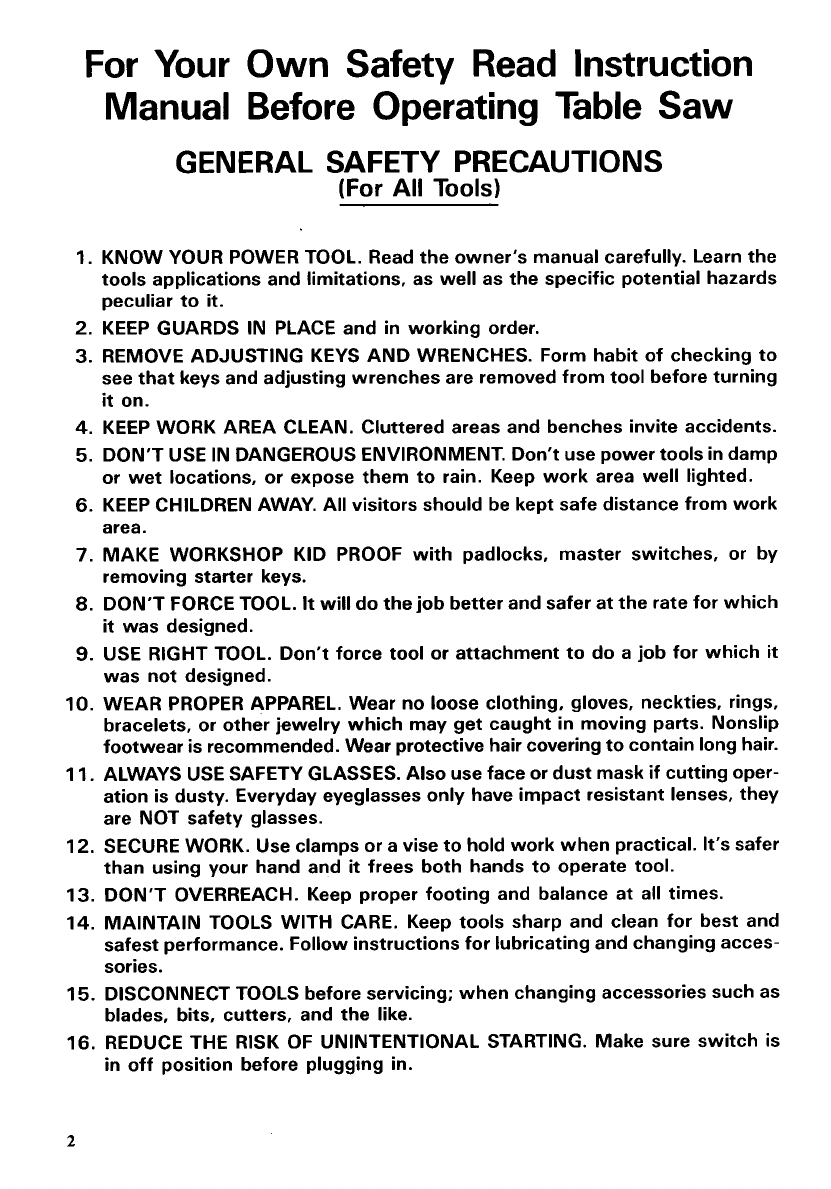
For Your Own Safety Read Instruction
Manual Before Operating Table Saw
GENERAL SAFETY PRECAUTIONS
(For
All
Tools)
1
2.
3.
4.
5.
6.
7.
8.
9.
10.
11.
KNOW YOUR POWER TOOL. Read the owner's manual carefully. Learn the
tools applications and limitations, as well as the specific potential hazards
peculiar to
it.
KEEP GUARDS IN PLACE and in working order.
REMOVE ADJUSTING KEYS AND WRENCHES. Form habit of checking to
see that keys and adjusting wrenches are removed from tool before turning
it
on.
KEEP WORK AREA CLEAN. Cluttered areas and benches invite accidents.
DON'T USE IN DANGEROUS ENVIRONMENT. Don't use power tools in damp
or wet locations, or expose them to rain. Keep work area well lighted.
KEEP CHILDREN AWAY. All visitors should be kept safe distance from work
area.
MAKE WORKSHOP KID PROOF with padlocks, master switches, or by
removing starter keys.
DON'T FORCE TOOL.
It
will do the job better and safer at the rate for which
it
was designed.
USE RIGHT TOOL. Don't force tool or attachment to do a job for which
it
was not designed.
WEAR PROPER APPAREL. Wear no loose clothing, gloves, neckties, rings.
bracelets, or other jewelry which may get caught in moving parts. Nonslip
footwear is recommended. Wear protective hair covering to contain long hair.
ALWAYS USE SAFETY GLASSES. Also use face or dust mask if cutting oper-
ation is dusty. Everyday eyeglasses only have impact resistant lenses, they
are NOT safety glasses.
12. SECURE WORK. Use clamps or a vise to hold work when practical. It's safer
than using your hand and
it
frees both hands to operate tool.
13.
DON'T OVERREACH. Keep proper footing and balance at all times.
14.
MAINTAIN TOOLS WITH CARE. Keep tools sharp and clean for best and
safest performance. Follow instructions for lubricating and changing acces-
sories.
15. DISCONNECT TOOLS before servicing; when changing accessories such as
blades, bits, cutters, and the like.
16. REDUCE THE RISK OF UNINTENTIONAL STARTING. Make sure switch is
in off position before plugging in.
2


















